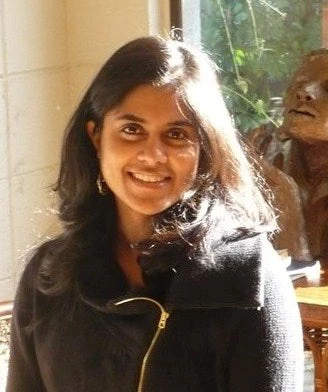 Training participants undertaking accessibility audit at a public primary school in Pwani region. Photo: Ruth Kennedy-Walker
Training participants undertaking accessibility audit at a public primary school in Pwani region. Photo: Ruth Kennedy-Walker
Somewhere deep in Tanzania, a familiar sight—a mother and child on a long journey for water. This, in fact, is a story of resilience in the everyday struggle for many for a basic human right: access to water and sanitation. And what if the mother or the child has a disability? The Sustainable Rural Water Supply and Sanitation Program (SRWSSP) is working to rewrite this reality with a focus on inclusivity and equal access for all, especially for marginalized communities and individuals with disabilities.
Access to sustainable water supply and improved sanitation services is a challenge for rural populations in Tanzania. It is even more so for women and for people with disabilities. On top of the distance to travel, what if a waterpoint or a sanitation facility is not designed to be accessible? The SRWSSP, while structured to cater to the wider Tanzanian population, emphasizes the necessity to ensure inclusivity for all members of communities. A dedicated and focused approach is vital to genuinely embedding inclusivity within the WASH (Water, Sanitation, and Hygiene) services, by constructing facilities that are accessible to all – including persons with disabilities.
Addressing the practical and cultural challenges
Beyond physical limitations like infrastructure and outdated policies, cultural and social barriers are critical. These obstacles restrict access to essential services and deny fundamental human rights, disproportionately affecting women and people with disabilities. The integration of a systematic and participatory approach is imperative, whereby all stakeholders, especially from marginalized communities, are deeply involved from decision-making to implementation.
To promote this approach, we brought together stakeholders and partners, including WaterAid, UNICEF, and the Tanzanian Federation of Organizations of Persons with Disabilities (SHIVYAWATA) for a workshop. The group shared theoretical knowledge with invaluable real-life experiences of daily challenges faced by marginalized communities. The mantra “nothing about us without us” is a core principle of this initiative: empowering marginalized communities and ensuring their active participation in decision-making related to the program and complex water and sanitation issues.
A field visit for stakeholders and project implementers demonstrated accessibility and safety audits developed by WaterAid, the World Bank, and UNICEF. Stakeholders and implementers from the Ministry of Health, the Ministry of Water; the Rural Water Supply and Sanitation Agency; the Ministry of Education, Science and Technology (MoEST) and the President’s Office–Regional Administration and Local Government, the key implementing agencies for the SRWSSP, reflected on lingering challenges such as the lack of capacity and awareness, despite government initiatives to make WASH facilities more accessible to achieve universal access. Visiting facilities, while looking through the lens of users to observe what type of barriers persons with different disabilities may be facing, was eye-opening for all participants, but especially those of us who as civil engineers are typically focused on technical designs on paper. It allowed us to better understand the needs of the most vulnerable users, learning from their experience and perspective.
Using a simple checklist and listening to reactions from participants with disabilities, we could see how seemingly small details in reality make it difficult to use a toilet, waterpoint or handwashing basin. The positioning of handrails, the sloping of ramps, the design and height of door handles and taps, and the width of paths and doorways are examples of insurmountable barriers for some people.
Understanding these barriers can enable implementers to identify improvements in the design, construction and monitoring of services. Also, they provide opportunities for people with disabilities to voice their concerns and work directly with government officials to address them.
The approach must be inter-sectoral
Inter-sectoral engagement has proven pivotal. The MoEST in Tanzania is committed to making education inclusive for children with disabilities. While they can provide expertise on inclusive education, they need local government administrations and even other ministries responsible for infrastructure to ensure buildings are accessible. There are also statutory bodies within government that are responsible for addressing disability issues across all sectors. Their awareness and expertise is an essential ingredient for truly inclusive WASH service.
By involving local-level authorities from various sectors like health and education, and institutions leading on disability, knowledge regarding accessibility and inclusion, for instance with school toilets, becomes translatable and shareable, impacting the design of healthcare facilities and other community infrastructure, thereby building collective capacity across various sectors.
Charting the future course
The vision for this endeavour is clear and unwavering: To foster an environment where every person, from grassroots activists to policymakers, understands and promotes inclusivity within their development projects. The ultimate aspiration is a Tanzania where every individual, irrespective of physical ability or socioeconomic status, can access clean water and sanitation facilities with ease and dignity.
This initiative is not merely about providing WASH services; it is a journey towards affirming and upholding the human rights of every Tanzanian. This collective effort through the SRWSSP, steered by the World Bank and its partners, exemplifies the transformative power of collaboration in shaping a brighter, inclusive future for all, where everyone has access to the most basic of human necessities: clean, safe water and adequate sanitation.
* The Inclusive WASH Training Workshop, organized by the World Bank Water and Social Sustainability and Inclusion Global Practices, was supported by the Human Rights, Inclusion, and Empowerment Trust Fund and the Global Water Security and Sanitation Partnership.







Join the Conversation